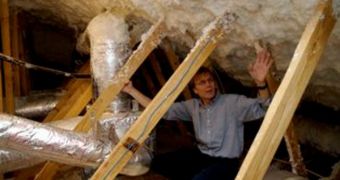Scientists at the US Department of Energy's (DOE) Oak Ridge National Laboratory (ORNL) are currently investigating deep retrofitting schemes which, they say, could help boost the energy efficiency of selected homes by 30 to 50 percent. They caution that the results of their studies would not necessarily mean that all homes will be suited for such schemes, but that a large number will be. The DOE supports these projects through a $1.4 million Building America Program grant, PhysOrg reports.
“Deep retrofit is a fairly expensive upfront proposition, but can be one of the best investments available to many homeowners. We're targeting homes that are 15-35 years old – homes that are ready for new windows, heating and cooling units, appliances and maybe even solar panels to push their homes closer to near-zero energy consumption. Then we want to monitor these homes, analyze their energy consumption and celebrate the progressive vision of this region,” says Jeff Christian.
The expert is the ORNL Buildings Technologies researcher heading the project and also an East Tennessee Quality Growth Council board member. He adds that at least ten homes in the region will be involved in the new investigations, which will seek to determine the extents of the improvements that could be made in general housing efficiency. Christian says that the overall cost of the investment will be recovered in 10 years tops, which is a very short time frame for this sort of things. Owners that will see their houses accepted in the selection process will have to pay about $10 per square foot of living space and agree to let their energy consumption be monitored after the retrofitting is done.
“This project connects our research to the surrounding community. We're hoping that this demonstration stimulates enough interest among members of the public that it will become self-sustaining – growing the number of houses with deep retrofits,” the expert says. “We're trying to look at what we can do with existing housing stock to improve the efficiency and also how we can influence new construction. The deep retrofit project will enhance our research findings with results from additional homes in the Valley,” adds Tennessee Valley Authority (TVA) researcher Bruce Rogers.

 14 DAY TRIAL //
14 DAY TRIAL //